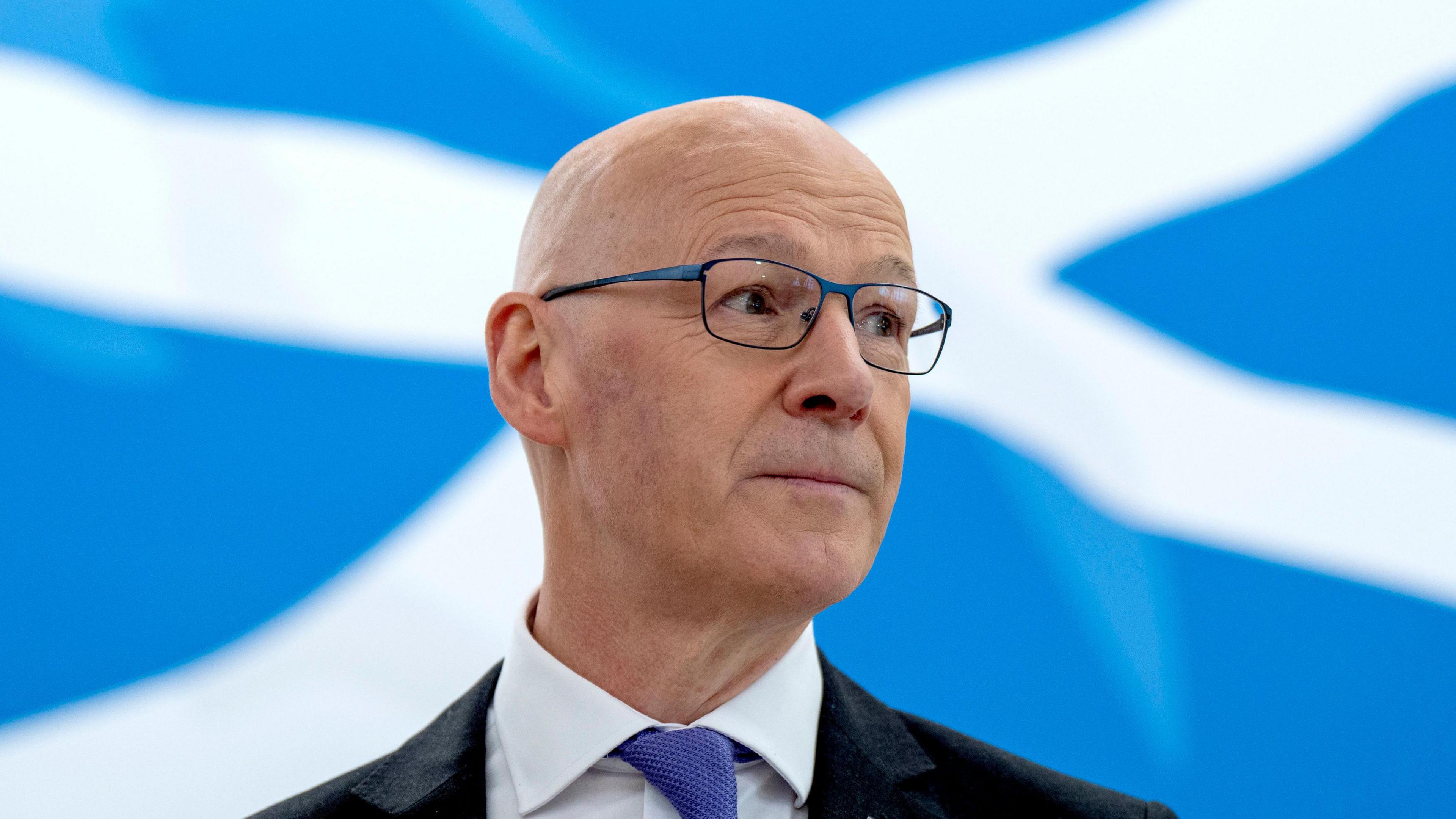SNP membership falls but party finances improve

The SNP along with other major parties saw a membership decline in 2023
- Published
The SNP's membership has fallen by nearly 10,000, newly published accounts have shown - but the party's finances have improved.
Accounts submitted to the Electoral Commission, external show the SNP had 64,525 members as of June this year – down from 74,889 in April 2023.
The accounts also revealed the party ended the year with a financial surplus of over £600,000, compared to a deficit of more than £800,000 in 2022.
SNP treasurer Stuart McDonald said the party was now offering membership payment options to "pre-empt cancellations" as members face cost of living pressures.
Party memberships fell in 2023 despite looming election
- Published22 August 2024
Labour got more donations than other parties combined
- Published15 July 2024
Other political parties represented at Westminster have also seen declining membership.
The SNP saw a rapid expansion in the years after the 2014 independence vote, but from 2019 and 2023 its membership has almost halved from a peak of 125,691.
A spokesperson said: “The SNP is the largest political party by far in Scotland - with a membership greater than all other parties combined, committed to our mission of delivering for people across the country by building a better future as an independent country.”
The SNP's report , externalacknowledged the party faced "significant changes" during 2023 with the resignation of Nicola Sturgeon and election of Humza Yousaf as leader.
The party continued to experience a "year of change" in 2024 with the ending of the Bute House agreement, resignation of Humza Yousaf, election of John Swinney as first minister and the general election.
Mr McDonald said the party needed to "redouble our efforts" to recruit new members.
"The SNP remains a party whose most significant source of income is our members and supporters - and this is always reflected in our accounts," he said.
"We are grateful for every member and supporter for their contributions, without which the party could not make the case for Scottish Independence."
The accounts show the SNP still owe £60,000 to former SNP chief executive Peter Murrell from a loan of £107,620 given to the party in 2021.
A surplus in party accounts of £661,568 came as a result of two branch levies, the first to fund the Rutherglen and Hamilton West by-election and another to prepare for the general election.
The general election saw nine SNP MPs returned to Westminster, down from 48 in the 2019 election
Other political parties
The SNP were not alone in lower membership numbers over the course of 2023, with most of the major parties seeing a decline.
The UK Labour party lost 37,000 members, bringing its total membership at the end of the year to 370,450.
Although Labour remained the largest party in the UK, the figure was well down on its recent peak of 532,046 at the end of 2019.
The Liberal Democrats lost around 11,000 members but, due to an increase in donations and income from party conferences, ended the year with a surplus of £271,258.
While the Conservatives do not publish membership figures, income for the party from membership fees fell from £1.97m to £1.5m.
The Conservatives had a financial surplus of £17.9m - helped by a £10m bequest from Lord John Sainsbury.
Not every party saw a drop in members, however, with the Green Party in England and Wales increasing to around 53,000, up from 49,000 members in 2019.
Reform UK claimed its membership had grown "significantly", although it did not publish figures.
The Scottish Greens said their finances improved during 2023 but membership income declined slightly.